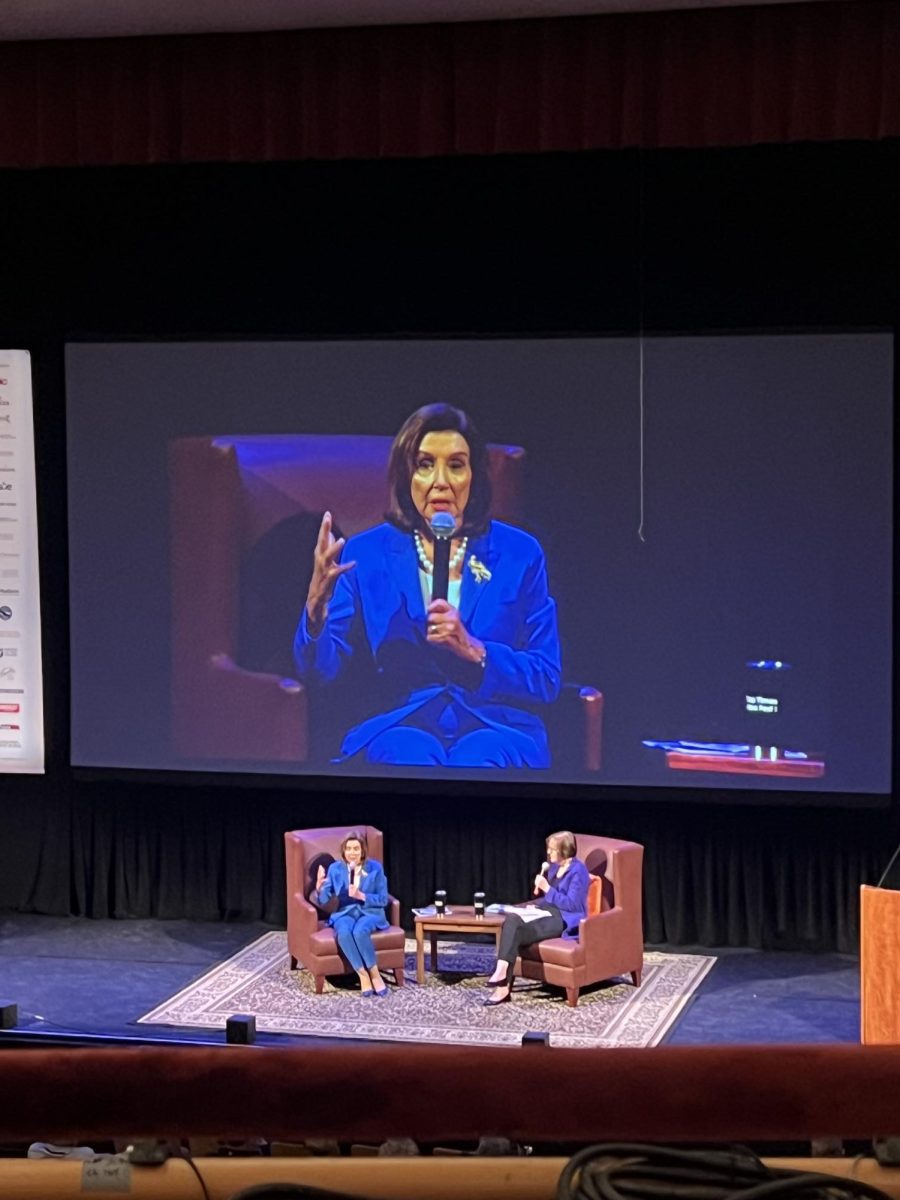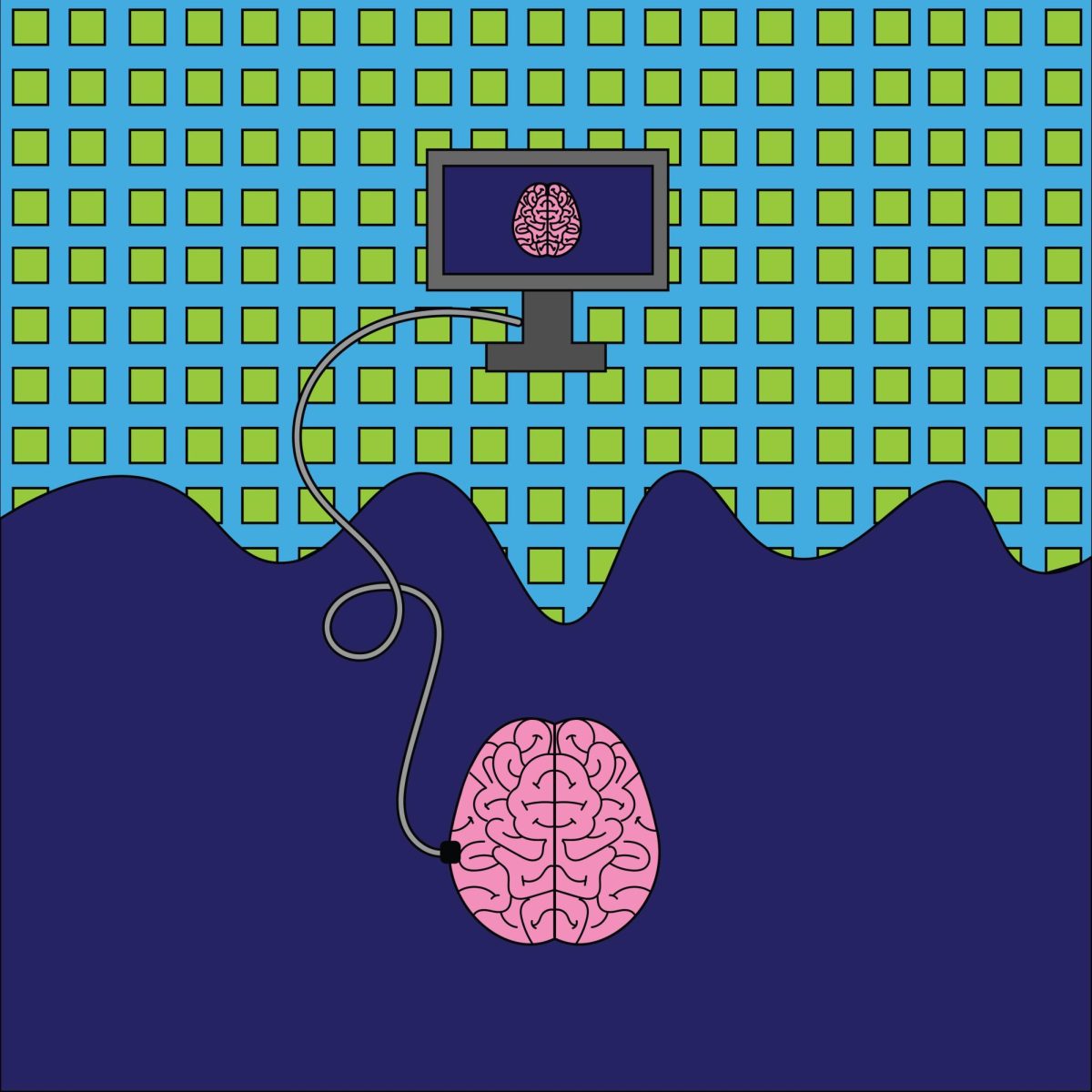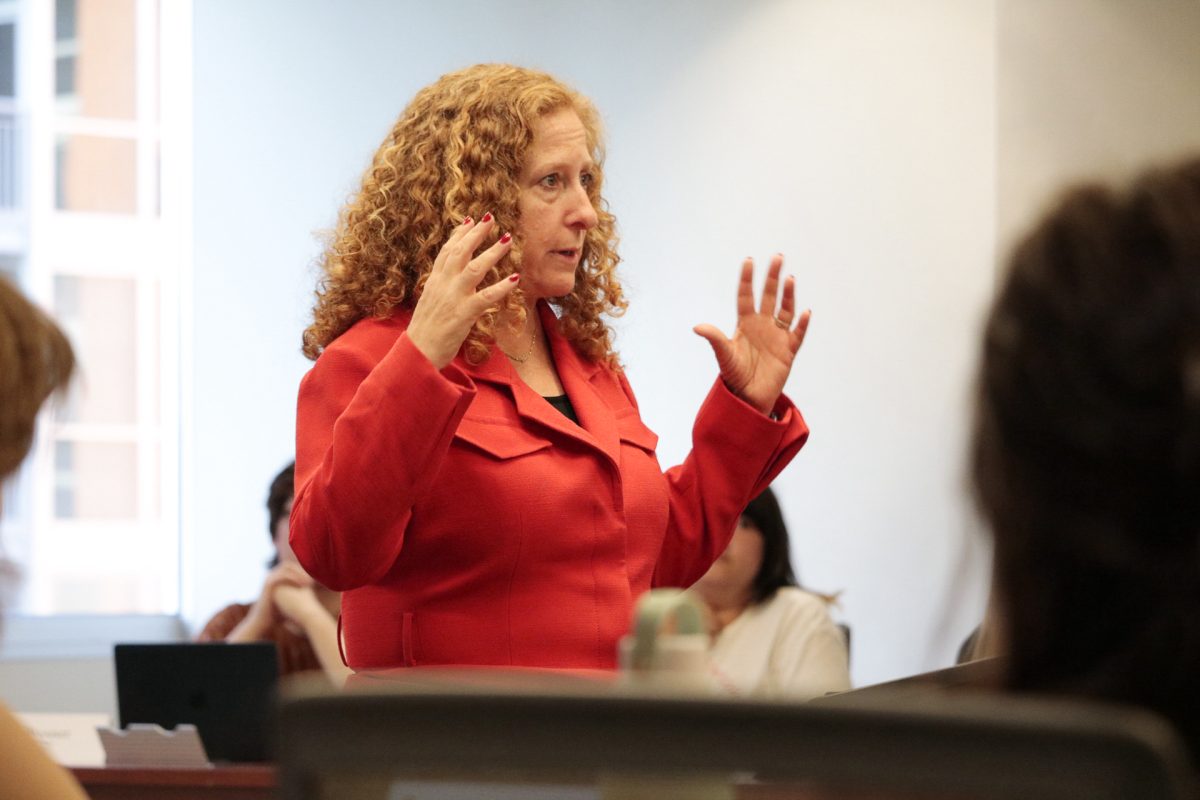University of Wisconsin junior Sara Ossanna felt like a rookie as she set out on a service trip this January.
She had never experienced an extended service trip before, though she had spent a good amount of time volunteering. The experience seemed to be a standard one for her companions.
But after she and 10 other University of Wisconsin students road-tripped eight hours to work for free and sleep on a floor for a week, she walked away happy.
Ossanna volunteered with Operation Breakthrough, a Kansas City organization that provides free or low-cost childcare for children who are homeless or seriously at-risk.
“The idea that we were just playing with kids and feeding them, it was really interesting to see how you can give such a little part of yourself and have such a big effect,” Ossanna said. “They weren’t looking for anything crazy or unexpected; they were really just looking for people to care.”
Ossanna is part of the growing ranks of students giving their time to do community service in Wisconsin and across the nation.
Building a “Service Nation”
With the celebration of Martin Luther King Jr. Day on Monday, more than 12,000 projects staffed by thousands more volunteers aimed to lend a hand in communities in the United States.
One group of people who were notably engaged were young people, or the Millennial Generation, according to Tim Zimmermann, director of creative content for Be The Change Inc., one group that promoted the day of service.
According to the Center for Information and Research on Civic Learning and Engagement, almost half these college students report volunteering on a regular basis.
“We have talked about the Millennial Generation potentially becoming the next greatest generation,” Zimmermann said. “It’s one that doesn’t want to engage in traditional partisan battles but believes in getting things done. It’s a very promising and inspiring generation.”
Be The Change Inc., is a national organization that advocates for expanded opportunities to do community service and the idea that service can be a way to solve the nation’s problems.
“One of our goals is to promote the idea that every citizen should serve when they can, and it’s an important component of citizenship,” Zimmermann said.
Along with Be The Change Inc., 120 organizations have joined to promote the formation of a “Service Nation,” spreading the same perspective on community service.
According to Zimmermann, as the current crop of college students has less of an inclination to engage in traditional politics, activism is being channeled instead toward volunteering.
This is evidenced by the 2008 National Survey of Student Engagement that said three out of four college seniors have participated in community service or plan to before graduation, outpacing the number who study abroad or complete an internship combined.
The U.S. Congress has also pledged to step in, poising to pass the Serve America Act, which would more than double the number of full- and part-time positions available in AmeriCorps, along with expanding an array of service opportunities within the United States.
According to Zimmermann, the need for the expansion is clear, with AmeriCorps turning away two applicants for every one it accepts and Teach for America expecting 37,000 applications for 5,000 spots.
“There’s a lot of connections between service and stimulus; service has a lot of return on the investment you put into it,” Zimmermann said.
UW Pitches In
UW Dean of Students Lori Berquam returned from a service trip of her own this week.
She joined a group of faculty and students on a physical therapy service-learning trip to Belize, which she called “an amazing, really life-changing event.”
The trip was part of a service-learning course put on by UW’s Morgridge Center for Public Service, which defines service-learning as “a method of joining academic theory with service to enhance student learning.”
“I think for me it was very powerful to see people in a different culture and how they deal with, for example, students with disabilities and day-to-day making life happen with extreme poverty, extreme unemployment and living conditions that are way below what we would call suitable living conditions,” Berquam said.
According to the 2008 annual update on the Wisconsin Experience from the provost’s office, 12 percent of UW graduates participate in a service-learning course.
For Berquam, this large number of UW students giving their time ties directly into the Wisconsin Idea and the knowledge and experience students gain at the university should extend to benefit the larger community.
“I would say that the whole idea of giving back to the community is giving yourself an opportunity to belong to the community,” Berquam said.
She added students would attest to the fact that they get back as much as they give by donating their time.
“Our students are the future leaders of the world, so the idea that they would be connected to the community, to want to make it better through financial resources or donating time or clothing or food, that really helps the community see the value of our students, our student leaders and the connections that can be made there,” Berquam said.
Students Organize
Much of the volunteering done at UW is spearheaded entirely by students, outstripping the service-learning program or other options facilitated by the university itself.
The student body at UW has formed more than 150 different registered student organizations to do community service.
One of those, The Badger Service Organization, was formed by juniors Jason Carr and J.P. Geygan last year.
According to Carr, they started the group to find a funding stream to allow more students to participate in service. After taking one trip last year to serve in the hurricane-devastated Biloxi, Miss., another trip is in the works for this spring break.
“We were really convinced by the enormity of the work that needed to be done [on the Gulf Coast.]” Carr said. “A lot of the images were really powerful, and after the experiences we heard from other people who went on trips, we really knew that was the area of the country that really needed it.”
Carr said after his experience, he was surprised with how much he enjoyed the people he met in the midst of hard work.
“I always assumed it’d be rewarding, but I never expected how fun it would be,” he said.
Serving it Greek style
A sizable portion of the student groups participating in service and philanthropy are fraternities and sororities.
All members of the Greek community on campus are required to contribute five hours of community service per semester, but many outpace that requirement quickly, according to Nate Anderson, president of UW’s Interfraternity Council.
Among the more than 1,000 members of the fraternity system alone, that adds up to 10,000 hours of service per year.
Beyond those required hours, each individual house usually operates a range of philanthropic and volunteer events.
The root of all this, according to Anderson, is the way the Greek system values service.
“It’s a really big part of Greek living. In our mission statement, we have four pillars of excellence and service is one of them,” Anderson said.
According to Anderson, the Greek system worldwide volunteers over 10 million hours a year.
“We want to build better men and better women, and doing service is definitely a part of that,” Anderson said.
IFC Vice President for Public Relations Jake Langbecker said when students rush fraternities and sororities, they realize the groups have a social aspect but know they will come out of the experience having given back to the community.
“I think everyone in their own way tries to give back,” Anderson said.













